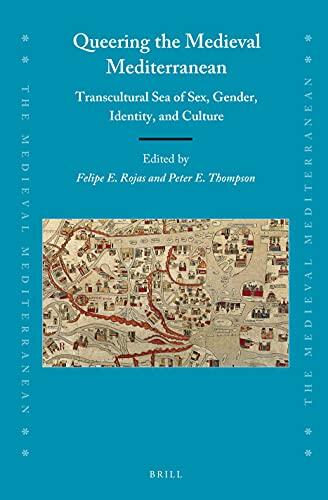
Queering the Medieval Mediterranean: Transcultural Sea of Sex, Gender, Identity, and Culture
还没有评分
格式
精装书
页数
260
语言
英语
已发布
Jul 29, 2021
出版商
BRILL
ISBN-10
9004315152
ISBN-13
9789004315150
描述
This book delves into the complexities of gender and sexuality in the medieval Mediterranean, illuminating the diverse identities that flourished within this rich cultural tapestry. Through a multidisciplinary lens, it challenges traditional narratives and invites readers to reconsider the interconnectedness of sex, gender, and identity in historical contexts. By examining a range of sources—from literature to art—participants reveal how these themes were negotiated and expressed across various cultures and communities.
Editors Felipe E. Rojas and Peter E. Thompson curate a collection of essays that highlight transcultural exchanges, illustrating the fluidity of identities during a time often oversimplified in contemporary discussions. Each contributor offers insights into how Mediterranean societies understood and performed gender roles, sexual practices, and social hierarchies, shaping a more nuanced understanding of the era.
The work ultimately serves as a groundbreaking contribution to the field, striving to fill the gaps in scholarship surrounding queer studies in medieval history. By weaving together narratives from different cultures, it underscores the importance of recognizing the multiplicity of experiences and identities that have always existed, urging readers to appreciate the rich, interconnected history of the Mediterranean world.
Editors Felipe E. Rojas and Peter E. Thompson curate a collection of essays that highlight transcultural exchanges, illustrating the fluidity of identities during a time often oversimplified in contemporary discussions. Each contributor offers insights into how Mediterranean societies understood and performed gender roles, sexual practices, and social hierarchies, shaping a more nuanced understanding of the era.
The work ultimately serves as a groundbreaking contribution to the field, striving to fill the gaps in scholarship surrounding queer studies in medieval history. By weaving together narratives from different cultures, it underscores the importance of recognizing the multiplicity of experiences and identities that have always existed, urging readers to appreciate the rich, interconnected history of the Mediterranean world.